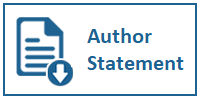Kebijakan Struktur Modal : Penetapan Bersama Struktur Modal Perusahaan-perusahaan Terbuka Non Keuangan di Indonesia Yang Dikontrol keluarga
Abstract
Compared to non-family controlled firms, family controlled firms have a stronger desire to maintain control to protect their highly valuable private benefits of control and firmspecific human capital. With substantial wealth and human capital at risk, family owners tend to be more risk averse than non-family owners, and also have stronger intention to reduce the prospect of financial distress and bankruptcy. These unique characteristics of family firms potentially make their capital structure decisions different from those of nonfamily firms. Panel data from 137 publicly listed firms in Indonesia from 1996 to 2005 were used to investigate the impact of family control on capital structure decisions. This study found that the family firm's capital structure follows a pattern which is aligned with Financial distress cost hypothesis (complement). Result indicates that family really put risk as consideration, while non-family firm's capital structure follow a pattern which is aligned with the agency cost hypothesis (substitute). Further analyses using the simultaneous equations system support the argument that family firms in Indonesia use dividend, leverage, debt maturity and leasing interchangeably to reduce financial distress cost, while their non-family counterparts tend to employ capital structure decisions to reduce agency cost
Key words: Family controlled firms, capital structure decisions, agency problem
Downloads
Downloads
Published
How to Cite
Issue
Section
License
Authors retain copyright and grant the journal right of first publication with the work simultaneously licensed under a Creative Commons Attribution-ShareAlike International License (CC-BY-SA 4.0) that allows others to share the work with an acknowledgement of the work's authorship and initial publication in this journal.
Authors are able to enter into separate, additional contractual arrangements for the non-exclusive distribution of the journal's published version of the work (e.g., post it to an institutional repository or publish it in a book), with an acknowledgement of its initial publication in this journal.














